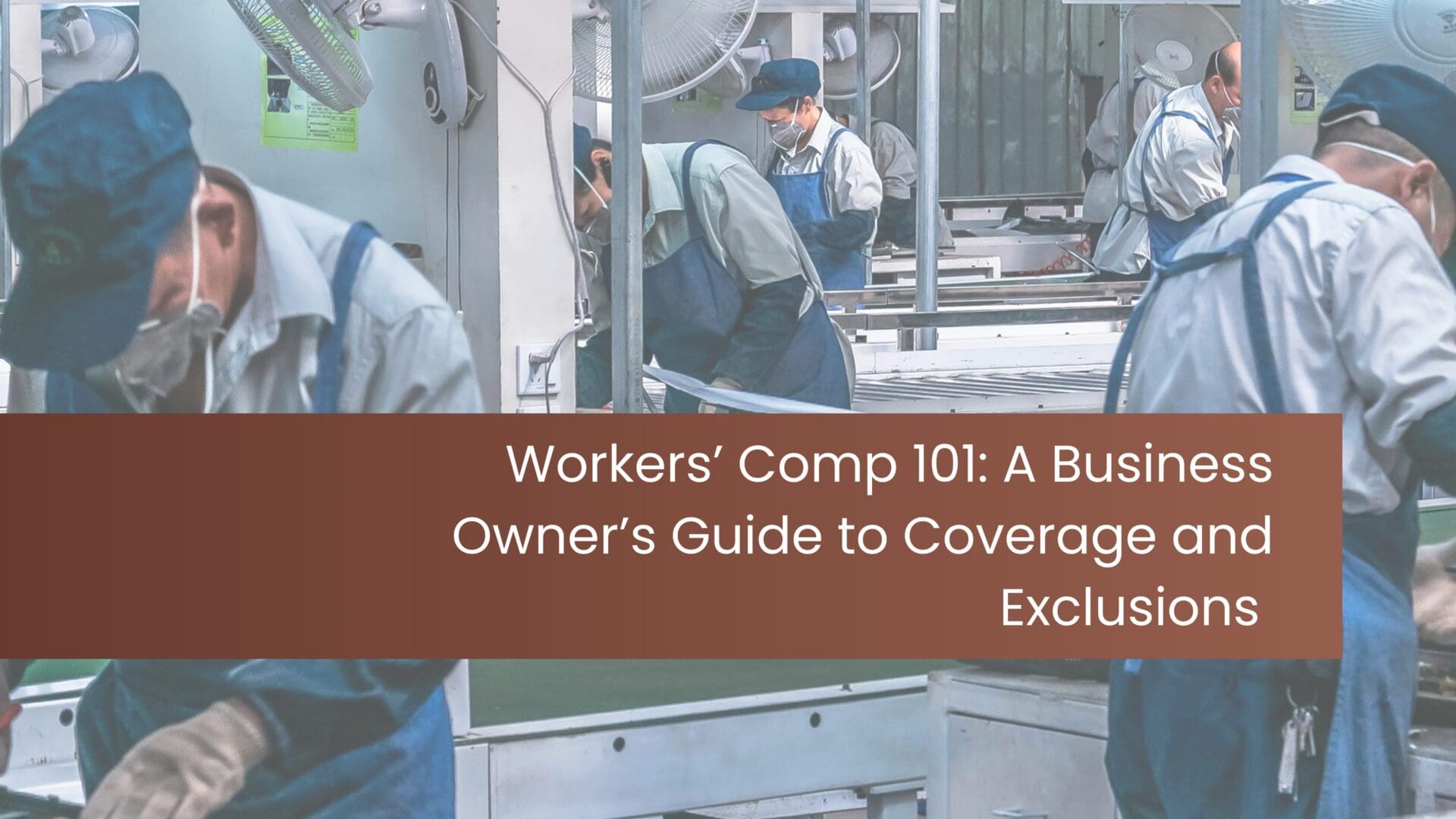Workers’ Comp 101: A Business Owner’s Guide to Coverage and Exclusions

If you are a business owner or a professional with a team of employees, Workers’ Compensation Insurance is one of the most crucial policies to have in place. As you read through this article, you’ll understand why and how this coverage protects your team and your business, where workplace injuries or illnesses may occur. While Workers’ Comp can be a little misunderstood, as many business owners don’t fully understand what is and isn’t included. In this article, we will briefly walk through what is typically covered, common exclusions, and important optional features that you may benefit from.
The majority of the states have made Workers’ Comp mandatory, but even when it isn’t, it still is a critical form of protection for both the employers and the employees. It typically covers:
- Medical Expenses: Covering doctor visits, hospital care, surgeries, prescriptions, and other treatments related to workplace injuries.
- Disability Benefits:
Temporary Disability: For employees who are unable to work temporarily.
Permanent Disability: For employees who develop a lasting disability that limits their work capacity. - Rehabilitation Costs: Covers physical therapy and other rehabilitative services that can help employees return to work healthy.
- Lost Wages: Covers partial wage replacement while the employee is out of work due to a covered injury.
- Death Benefits: Covers the financial support needed by the dependents of the employee if he/she dies due to a work-related incident.
Optional Add-On: Third Party Coverage
An important enhancement to workers’ comp policies is third-party coverage, which is especially relevant for businesses in healthcare or service-based industries. This type of coverage typically steps in when a non-employee sues your business because of the actions of an employee. This coverage is not automatically included, but it can be crucial depending on your industry and risk exposure.
Mental Health & Workers’ Compensation
In the past, psychological injuries like stress, PTSD, or anxiety have not been covered under workers’ comp unless they were connected to a physical injury, since proving these claims was difficult. With the rising awareness of mental health, things are beginning to change. Some states, such as Minnesota, have started to expand coverage to include mental health claims that result from extreme or traumatic work-related events, such as high-risk professions like first responders or healthcare workers, even if there is no accompanying physical injury. Though the eligibility of these claims and standards still vary significantly by state, employers must be aware of their state’s stance and consider how evolving legislation may impact their coverage.
Common Exclusions:
- Injuries not related to work
- Intentional acts (self-inflicted harm or violence)
- Incidents due to intoxication or drug use
- Injuries during the violation of policy or illegal acts
- Common illnesses like a cold/flu that aren’t directly tied to work
Workers’ comp isn’t just about legal requirements, it’s crucial to understand that it is a key part of protecting your people and your business. Ensure your policy is reviewed regularly, and make sure that it aligns with your current operations, your state’s laws, and the unique risks of your industry.

